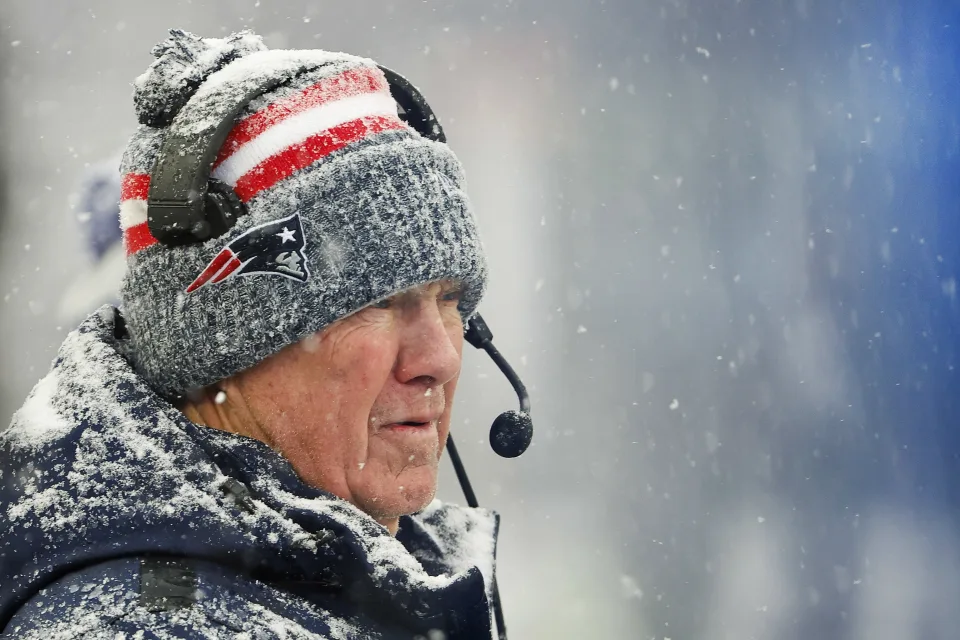Bill Belichick, with an illustrious career marked by 302 regular-season victories, 31 playoff victories, 20 double-digit-win seasons, 17 division titles, nine Super Bowl appearances, and six Vince Lombardi Trophies, recently parted ways with the New England Patriots. Despite his remarkable track record, Belichick seems to be receiving surprisingly minimal interest from NFL teams.

Out of the seven NFL teams with coaching vacancies (Atlanta, Carolina, Las Vegas, Los Angeles Chargers, Seattle, Tennessee, and Washington), only the Atlanta Falcons have formally interviewed Belichick. This lack of interest raises questions about why other teams are not exploring the possibility of hiring arguably the greatest and most accomplished coach in NFL history.
Even the currently unemployed Pete Carroll, with nine double-digit-win seasons and a Super Bowl title, hasn’t received any publicized inquiries. Belichick’s situation is puzzling, given the extraordinary success he has achieved throughout his career.
The reluctance to engage with Belichick in discussions could be attributed to various factors. Some teams might be swayed by the notion that New England’s success was solely due to Tom Brady, while others might be apprehensive about bringing in a coach with a significant personality and star power. The question arises whether Belichick needs to undergo a process of rejuvenation, perhaps by joining another coaching staff, to regain appeal.
Belichick, at 72, is undeniably an experienced figure in the league. However, this lack of interest prompts speculation about how teams perceive him and whether owners and general managers have fallen for the argument that Brady was the sole driving force behind New England’s success.
While Belichick is not infallible and has faced criticism, the absence of serious discussions with him is surprising. Even if teams are not ultimately considering hiring him, engaging in conversations with a coach of Belichick’s caliber could prove invaluable. His extensive knowledge of football, coaching strategies, leadership, motivation, and team-building could provide valuable insights to any franchise.
The notion that New England’s struggles in the previous season, finishing 4-13, somehow diminish the Patriots’ two decades of excellence is debunked. Belichick’s inability to secure a viable quarterback after Brady’s departure and the challenges in assembling a competitive roster do not negate the years of smart coaching and strategic brilliance that defined the Patriots.
In essence, the lack of interest in Bill Belichick remains a perplexing aspect of the current NFL coaching landscape. The potential benefits of engaging with a coach of his caliber, regardless of the ultimate hiring decision, raise questions about why more teams are not exploring this opportunity.


